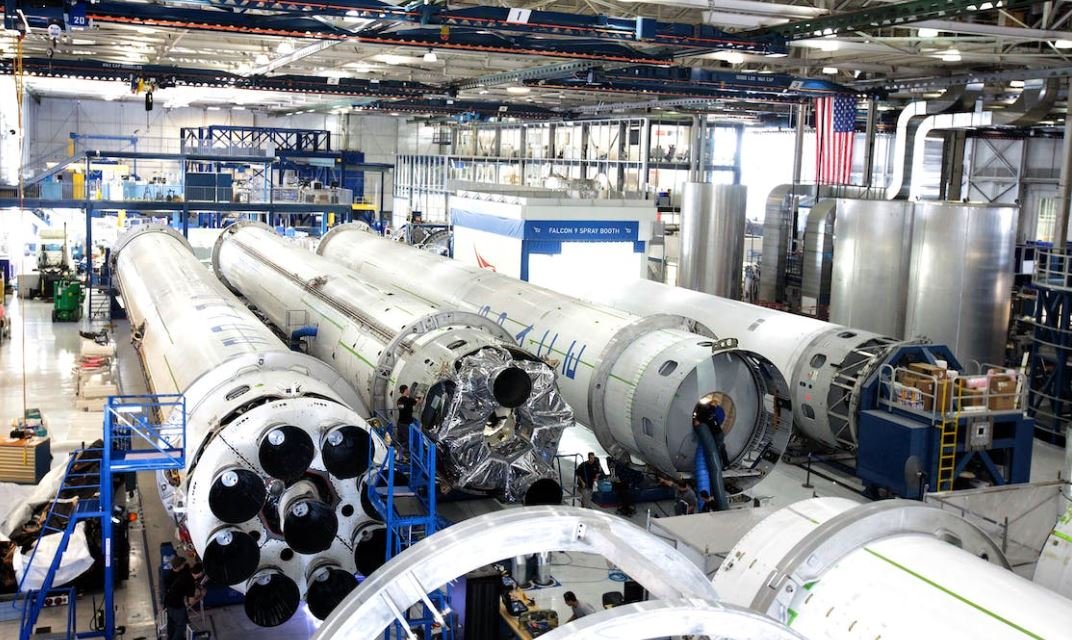AI Voice Cloning
AI voice cloning, also known as text-to-speech synthesis, is an emerging technology that allows computers to generate human-like voices by analyzing and mimicking speech patterns and vocal characteristics. This technology has promising applications in voice assistants, audiobook narration, virtual reality experiences, and more.
Key Takeaways
- AI voice cloning enables computers to generate human-like voices.
- It has various applications, including voice assistants and virtual reality.
- Text-to-speech synthesis is a rapidly advancing field of AI.
- Customizable voices offer great potential for personalization.
Advancements in AI Voice Cloning
Over the past few years, AI voice cloning has made significant progress. Deep learning algorithms combined with large datasets of recorded human speech have allowed AI systems to learn the intricacies of voice generation. This has resulted in more natural-sounding and expressive synthetic voices that can accurately replicate various accents, emotions, and intonations.
With each iteration, AI voice cloning models are becoming more indistinguishable from human voices.
Applications of AI Voice Cloning
The applications of AI voice cloning are vast and continue to grow. Here are some areas where this technology is being utilized:
- Voice Assistants: AI voice cloning allows voice assistants like Siri, Alexa, and Google Assistant to provide more human-like responses, improving user experience.
- Virtual Reality: By integrating realistic and personalized voices into virtual reality experiences, AI voice cloning enhances immersion and engagement.
- Audiobook Narration: Text-to-speech synthesis enables the generation of high-quality audiobooks with customizable voices, making them more accessible to a wider audience.
Current Challenges and Limitations
While AI voice cloning has come a long way, there are still challenges and limitations to address:
- Data Collection: Access to diverse and extensive voice datasets is crucial for training AI models that produce accurate and inclusive synthetic voices.
- Emotional Nuance: Capturing the subtleties of human voice in terms of emotions, sarcasm, or humor remains a challenge for AI voice cloning systems.
- Ethical Concerns: The potential misuse of AI-generated voices, such as deepfake audios and scam calls, raises ethical and security concerns that need to be addressed.
Recent Breakthroughs in AI Voice Cloning
| Breakthrough | Description |
|---|---|
| Transfer Learning | Transfer learning techniques have allowed AI models to adapt voices to new speakers with minimal training data, reducing the need for extensive recording sessions. |
| Style Transfer | Style transfer algorithms enable AI systems to modify the prosody and speaking style of a synthetic voice, making it more suitable for specific applications or personal preferences. |
| Speaker Adaptation | Advancements in speaker adaptation algorithms have improved the ability of AI models to mimic the unique characteristics of individual speakers. |
Future Possibilities and Impact
As AI voice cloning continues to advance, its impact and possibilities are vast. Here are some of the potential future developments:
- Personalized Voices: Individuals may customize their digital voice assistants or personalize voice interfaces for their devices, creating a more tailored and human-like experience.
- Language Learning: AI voice cloning could aid language learners by providing accurate pronunciation guidance and language practice exercises.
- Preserving Voices: By capturing the essence and uniqueness of human voices, AI voice cloning could be used to preserve the voices of loved ones or historical figures.
Conclusion
AI voice cloning is an exciting field that offers numerous possibilities across various domains. With advancements in deep learning and large datasets, human-like synthetic voices are becoming increasingly indistinguishable from real voices. While there are challenges and ethical considerations, the impact and potential of AI voice cloning are substantial, and its future development holds great promise.

Common Misconceptions
Misconception 1: AI Voice Cloning is Perfect and Indistinguishable from Human Speech
One common misconception about AI voice cloning is that it can perfectly replicate human speech and cannot be differentiated from a real person’s voice. However, this is not entirely accurate. While AI voice cloning has made significant advancements, it still has its limitations and can exhibit subtle differences that trained individuals may be able to detect.
- AI voice cloning may have difficulty capturing nuanced emotions and tone.
- The cloned voice may not sound exactly like the original voice in certain scenarios.
- Certain speech patterns and unique vocal traits may not be accurately replicated by AI voice cloning.
Misconception 2: AI Voice Cloning Can Be Used to Manipulate Audio Evidence
Another misconception surrounding AI voice cloning is that it can be used to manipulate audio evidence and create fake recordings that are indistinguishable from authentic ones. However, this is not entirely true. While AI voice cloning technology does have the potential to create synthetic speech, experts can still analyze the authenticity of audio recordings using various techniques.
- Forensic experts can employ advanced signal processing methods to detect signs of tampering or synthetic elements in audio recordings.
- With proper analysis, differences in background noise or anomalies in the speech pattern can help identify manipulated audio.
- Legal systems and investigative agencies have developed methods to determine the authenticity of audio evidence, considering the potential of AI voice cloning.
Misconception 3: AI Voice Cloning Will Lead to Massive Job Losses for Voice Over Artists
There is a misconception that the rise of AI voice cloning technology will lead to job losses for voice over artists. However, this is an oversimplification of the impact of AI on the industry. While AI voice cloning can assist in generating synthetic voices, it cannot completely replace the unique abilities and skills of voice over artists.
- Voice over artists bring creativity, emotion, and interpretation to their work, which AI voice cloning may struggle to replicate fully.
- Artistic choices, such as emphasis and intonation, are important aspects of voice acting that AI may not be able to mimic seamlessly.
- Voice over artists often provide personalized services, collaborating with clients to achieve specific goals, which AI voice cloning cannot offer.
Misconception 4: AI Voice Cloning Infringes on Privacy Rights
Some people fear that AI voice cloning poses a significant threat to privacy rights. While there are valid concerns, it is important to note that responsible use of AI voice cloning technology can mitigate potential privacy risks.
- Privacy laws and regulations can govern the usage and storage of cloned voices, protecting individuals from unauthorized access or misuse.
- Transparent consent and clear disclosure protocols can be established to ensure that individuals are aware of the usage of their voice data.
- Governments and organizations can implement strict guidelines and regulations to safeguard privacy rights in the context of AI voice cloning.
Misconception 5: AI Voice Cloning is easily accessible to anyone
There is a common misconception that AI voice cloning is easily accessible to everyone and can be used by anyone without constraints. However, AI voice cloning technology is not as widely available or easily accessible as some may think.
- The development and training of AI voice cloning models require significant computational resources and expertise, limiting its widespread availability.
- Quality AI voice cloning services are often provided by specialized companies and require adherence to legal and ethical requirements.
- AI voice cloning systems typically need extensive databases of voice recordings to create accurate clones, which might not be publicly available for every individual.

The Rise of AI Voice Cloning
Artificial Intelligence (AI) voice cloning has been making significant strides in recent years, revolutionizing numerous industries. This advanced technology enables the creation of realistic and accurate voice replicas, offering a range of applications from voice assistants to audio book narrations. In this article, we explore various elements of AI voice cloning through a series of captivating tables.
Table: Adoption of AI Voice Cloning in Industries
AI voice cloning technology has been adopted by various industries, transforming the way they operate. The table below showcases the industries benefiting from this game-changing innovation.
| Industry | Applications |
|---|---|
| 1. Healthcare | AI-powered virtual nurses, patient monitoring systems |
| 2. Entertainment | Immersive voice-driven experiences, personalized audio content |
| 3. Customer Service | Chatbots, voice-enabled customer support |
| 4. Gaming | Realistic character voices, interactive gaming experiences |
| 5. Advertising | Persuasive voiceovers, targeted audio advertisements |
Table: Benefits of AI Voice Cloning
AI voice cloning offers a wide array of benefits for both businesses and users. The table below highlights some of the key advantages of this innovative technology.
| Benefits for Businesses | Benefits for Users |
|---|---|
| Improved customer interactions | Enhanced accessibility for the visually impaired |
| Cost savings in voice talent hiring | Personalized voice assistants |
| Efficient multilingual voice capabilities | Realistic and engaging audio content |
| Increased brand consistency | Interactive and immersive experiences |
Table: Popular AI Voice Cloning Platforms
Several platforms have emerged as leaders in the field of AI voice cloning. The table below showcases some of the most popular platforms available today.
| Platform | Main Features |
|---|---|
| VoiceAI | Real-time voice replication, diverse voice options |
| CloneVoice | Seamless integration with various applications |
| VocalSynth | Advanced voice modulation, customizable voices |
| SpeakEasy | User-friendly interface, natural sounding voices |
Table: Ethical Considerations in AI Voice Cloning
The rapid advancement of AI voice cloning has brought along ethical considerations that need to be addressed. The table below highlights some of these critical ethical issues.
| Ethical Considerations | Implications |
|---|---|
| Unauthorized impersonation | Potential misuse for fraud or deceptive purposes |
| Privacy concerns | Possible exploitation of personal voice data |
| Reality distortion | Creation of deepfake audio content |
| Abuse of synthesized voices | Creating misleading or harmful content |
Table: AI Voice Cloning Use Cases
AI voice cloning applications are diverse and impactful, revolutionizing various industries. The table below presents noteworthy use cases for this evolving technology.
| Use Case | Description |
|---|---|
| 1. Audiobook Narration | Enhancing audio book experience with natural-sounding voices |
| 2. Virtual Assistants | Enabling personalized and interactive digital companions |
| 3. Language Learning | Improving language acquisition through accurate pronunciation |
| 4. Accessibility Solutions | Assisting individuals with speech impairments |
| 5. Podcast Production | Efficient generation of engaging podcast episodes |
Table: Challenges in AI Voice Cloning Expansion
While AI voice cloning presents immense possibilities, there are challenges impeding its widespread adoption. The table below outlines some of the hurdles hindering the expansion of this technology.
| Challenges | Impact |
|---|---|
| Data privacy concerns | Reluctance to share personal voice data |
| Uncanny valley effect | Difficulty in achieving truly indistinguishable voices |
| Regulatory limitations | Legal frameworks surrounding synthesized voice usage |
| Unintended bias | Reinforcing prejudice or discrimination through voice replication |
Table: Future Perspectives and Applications
The future of AI voice cloning holds immense promise, with potential applications that could transform various sectors. The table below offers a glimpse into the future perspectives of this groundbreaking technology.
| Future Applications | Expected Impact |
|---|---|
| Medical diagnostics | AI-based voice analysis aiding in disease detection |
| Entertainment industry integration | Seamless incorporation of synthesized voices in movies and TV shows |
| Improved voice authentication | Enhancing security measures through voice biometrics |
| Augmented reality experiences | Immersive AR applications with realistic voice interactions |
Table: Impact of AI Voice Cloning
The advent of AI voice cloning has brought about significant impacts on various aspects of society and technology. The table below illustrates the profound effects of this groundbreaking technology.
| Impact Areas | Implications |
|---|---|
| Productivity and efficiency | Automation of voice-related tasks, saving time and resources |
| Personalized experiences | Customized voice interactions tailored to individual preferences |
| Transformed customer interactions | Seamless and natural voice-driven support and services |
| Improved accessibility | Expanded access for individuals with disabilities |
AI voice cloning is an innovative breakthrough that has revolutionized industries ranging from healthcare to entertainment. The adoption of this technology has introduced numerous benefits, including enhanced customer interactions, cost savings, and efficient multilingual capabilities. However, ethical considerations, challenges in expansion, and data privacy concerns pose significant obstacles to its widespread implementation. Looking ahead, the future holds great potential for AI voice cloning, with advancements expected in medical diagnostics, entertainment industry integration, and voice authentication. As AI voice cloning continues to shape the world around us, its impact on productivity, personalized experiences, customer interactions, and accessibility will be profound.
Frequently Asked Questions
What is AI voice cloning?
AI voice cloning is a technology that uses artificial intelligence to replicate and mimic human voices. It involves training an AI model on a large dataset of audio recordings to generate synthetic speech that closely resembles a specific human voice.
How does AI voice cloning work?
AI voice cloning typically involves two key steps: training and synthesis. During the training phase, an AI model is fed with a large dataset of recordings of a specific human voice. The model then analyzes and learns the patterns, nuances, and speech characteristics of that voice. In the synthesis phase, the trained model generates synthetic speech using text inputs or prompts.
What are the applications of AI voice cloning?
AI voice cloning has various applications, including but not limited to:
- Creating voiceovers for media content
- Personalized digital assistants
- Voice actors for animated characters
- Text-to-speech systems
- Voice banking for individuals with speech disabilities
- Call center automation
Is AI voice cloning ethical?
The ethical implications of AI voice cloning are subject to ongoing debate. While the technology offers numerous benefits, such as accessibility and customization, it also raises concerns regarding potential misuse, privacy, and authenticity of voice recordings. It is crucial to use AI voice cloning responsibly and with the consent of the individuals involved.
What are the limitations of AI voice cloning?
AI voice cloning still has some limitations. These include:
- Difficulty in replicating emotional nuances accurately
- Inability to generate voices of individuals not in the training dataset
- Challenges in maintaining privacy and preventing unauthorized use
- Potential for misuse, such as generating fake voice recordings
Can AI voice cloning be used for illegal activities?
While AI voice cloning itself is not illegal, its misuse can lead to illegal activities, such as creating fraudulent voice recordings for scams or voice impersonation. It is important to use AI voice cloning technology responsibly and within legal boundaries.
How accurate is AI voice cloning?
The accuracy of AI voice cloning largely depends on the quality of the training data, the complexity of the voice being cloned, and the sophistication of the AI model. While AI voice cloning has made significant advancements, it may not achieve perfect accuracy in replicating all aspects of a human voice.
How can I protect my voice from being cloned without consent?
Protecting your voice from unwanted cloning can be challenging. However, some preventive measures include being cautious about sharing voice recordings online, using unique and complex passwords for voice-related accounts, and familiarizing yourself with privacy settings and terms of service of any voice-related platforms or applications you use.
Is AI voice cloning available to the general public?
Yes, AI voice cloning technology is available to the general public through various platforms and applications. However, it is important to consider the ethical implications and potential risks associated with its usage.
Are there any regulations or guidelines for AI voice cloning?
Currently, there are no specific global regulations or guidelines solely dedicated to AI voice cloning. However, data protection and privacy laws may apply depending on the jurisdiction. It is advisable to stay updated with the legal and ethical developments in this field.




